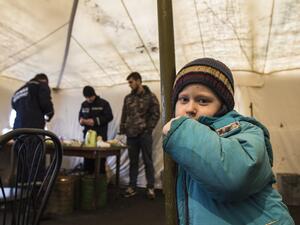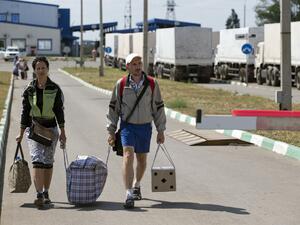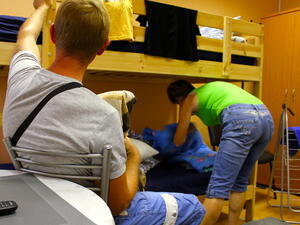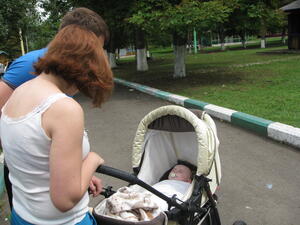Ingushetia: Pressure rises for Chechens at Bella camp
Ingushetia: Pressure rises for Chechens at Bella camp
UNHCR is concerned about a succession of events that have increased the uncertainty affecting around 1,000 displaced Chechens living in Bella Camp in Ingushetia. During the course of the past week, the camp's inhabitants have been subjected to a number of measures that have increased their already substantial fears that they are about to be forced back to Chechnya against their will.
Starting last Wednesday, all three main utilities - gas, electricity and water - have been cut off for varying periods and then restored. After a relatively quiet weekend, the gas and electricity supplies were cut once again yesterday, and there were reports that some of the latrines had also been removed.
Access for aid agencies, including UNHCR, has also been denied for varying periods and remains erratic. On Friday, UNHCR made official complaints about the lack of access in both Moscow and Geneva. Yesterday, a UNHCR staff member was allowed to enter the camp. However, several other agencies were not permitted to go in. In addition, a military checkpoint was erected at the entrance to the camp last Wednesday - the same day that gas and electricity supplies were first cut.
UNHCR does not in principle oppose plans to relocate some or all of the IDPs from Bella camp to other locations in Ingushetia - and indeed has provided tents in another camp, Satsita, for some Bella inhabitants who say they wish to move. However, the possibilities for appropriate alternative accommodation elsewhere in Ingushetia have not been fully and clearly elaborated.
The Russian government has given repeated assurances that Chechens will not be coerced - directly or indirectly - into returning against their will.
Latest estimates put the total number of IDPs in Ingushetia at around 77,000, of whom over 11,000 are accommodated in five camps, with the rest living in temporary settlements or private accommodation.









